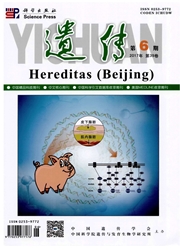

 中文摘要:
中文摘要:
全基因组关联研究(Genome-wide association study,GWAS)是人类复杂疾病研究的重要组成部分之一,在群体水平检测全基因组范围的遗传变异与可观测性状间的遗传关联.传统的GWAS是以芯片(Array)技术获得高密度的遗传变异,尽管硕果累累,但也存在不少问题.如:所谓的“缺失的遗传力”,即利用关联分析检测达到全基因组水平显著的遗传变异位点只能解释小部分遗传力;在某些性状上不同研究的结果一致性较弱;显著关联的遗传变异位点的功能较难解释等.高通量测序技术,也称第二代测序(Next-generation sequencing,NGS)技术,可以快速、准确地产出高通量的变异位点数据,为解决以上问题提供了可行的方案.基于NGS技术的GWAS方法(NGS-GWAS)可在一定程度上弥补传统GWAS的不足.文章对NGS-GWAS策略和方法进行了系统性调研,提出了目前较为可行的NGS-GWAS的实施策略和方法,并对NGS-GWAS如何应用于个体化医疗(Personalized medicine,PM)进行了展望.
 英文摘要:
英文摘要:
Genome-wide association study (GWAS) has been playing an important role on human complex diseas- es. Generally speaking, GWAS tries to detect the relationship between genome-wide genetic variants and measurable traits at the population level. Although fruitful, array-based GWAS still has some problems, for example, the so-called "missing heritability"-the significantly associated SNPs can only explain a small part of phenotypic variation. Other problems include that, in some traits, the significantly associated SNPs in one study are hard to be repeated by otherstudies, and that the functions of significantly associated SNPs are often difficult to interpret. High-throughput se- quencing, also known as next-generation sequencing (NGS), could be one of the most promising technologies to solve those problems by quickly producing accurate variations in a high-throughput way. NGS-based GWAS (NGS-GWAS), to some extent, provides a better solution compared with the traditional array-based GWAS. We systematically review the strategies and methods for NGS-GWAS, pick out the most feasible and efficient strategies and methods for NGS-GWAS, and discuss their applications in personalized medicine.
 同期刊论文项目
同期刊论文项目
 同项目期刊论文
同项目期刊论文
 期刊信息
期刊信息
